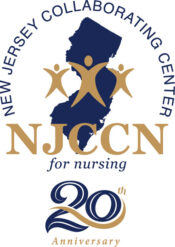Feb 14, 2017 | NJNI in the News, Nursing News
by NJNIs Co-Director Dr. Susan Salmond.
There are transformative changes occurring in healthcare for which nurses, because of their role, their education, and the respect they have earned, are well positioned to contribute to and lead. To be a major player in shaping these changes, nurses must understand the factors driving the change, the mandates for practice change, and the competencies (knowledge, skills, and attitudes) that will be needed for personal and systemwide success. This article discusses the driving factors leading to healthcare transformation and the role of the registered nurse (RN) in leading and being a fully contributing member of the interprofessional team as we shift from episodic, provider-based, fee-for-service care to team-based, patient-centered care across the continuum that provides seamless, affordable, and quality care. This new health paradigm requires the nurse to be a full partner in relentless efforts to achieve the triple aim of an improved patient experience of care (including quality and satisfaction), improved outcomes or health of populations, and a reduction in the per capita cost of healthcare.
Read the full article here:
Mar 10, 2016 | NJNI in the News, Nursing News
NJNI is pleased to announce that alumni Rahshida L. Atkins, PhD, MSN, APN, FNP-BC PhD Cohort 1 (2009) Rutgers School of Nursing has published several recent articles related to her PhD Dissertation Topic – A Theoretical Model of Depression in Black Single Mothers.
Publications:
Atkins, R. (2016). Coping with Depression in Black Single Mothers. Issues in Mental Health Nursing, 37, 1-10.
Atkins, R. (2016). Outcomes of Depression in Black Single Mothers. Clinical Nursing Research, 1-20. DOI: 10: 10.1177/1054773816633440
Atkins, R. (2015). Depression in Black single mothers: A test of a theoretical model. Western Journal of Nursing Research, 37, 6. 812-830.
Atkins, R (2014). Psychometric Review of Instruments Measuring Perceived Racism/Racial Discrimination: Review and Critique of Factor Analytic Techniques, International Journal of Health Services, 44, (4).
Atkins, R. (2014). Validation of the Center for Epidemiologic Studies Depression Scale in Black Single Mothers. Journal of Nursing Measurement, 22, 511-524.
Atkins, R. (2010). Self-efficacy and the promotion of health for depressed single mothers. Journal of Mental Health in Family Medicine, 7(2), 155-168

Jul 27, 2015 | NJ Action Coalition, NJNI in the News, Nursing News
NJNI alumna, Maria LoGrippo, was guided in her postdoctoral position at Rutgers University by Edna Cadmus, who provided her protégé with opportunities to lead, including LoGrippo’s current position as project director for an RWJF State Implementation Program grant.

See full article: Advancing_Health_July2015
Jul 23, 2015 | NJNI in the News, Nursing News
The number of patients with cancer is expected to rise 42% by 2025, according to the American Society of Clinical Oncology, but nurse practitioners trained for primary care sometimes lack oncology experience.
“They’re coming out of school with knowledge gaps,” said Tracy Krimmel, MSN, RN, AOCN, APRN-BC, nurse manager of adult oncology clinical services at the Rutgers Cancer Institute of New Jersey, New Brunswick.
Rutgers is addressing the issue by offering an Advanced Practice Nursing Fellowship program that gives NPs specialized training in cancer care.
Krimmel worked with Janet Gordils-Perez, MA, RN, ANP-BC, AOCNP, executive director/oncology nursing services at CINJ, and Renee Kurz, MSN, RN, FNP-BC, (NJNI Alumna) instructor at Rutgers University’s School of Nursing, to develop the program. In April, they gave a poster presentation at the Oncology Nursing Society’s 40th annual Congress, where nurses nationwide learned about the program’s outcomes and sustainability.
The goal of the program is to retain NPs at CINJ and improve their comfort level by preparing them to practice confidently and independently, and handle complex challenges specific to oncology patients, such as pain management and end-of-life issues.
Read full story here.
Jul 13, 2015 | NJNI in the News, Nursing News, Press Releases
With support from the New Jersey Nursing Initiative (NJNI), five more highly educated nurses are prepared to assume faculty roles and help meet the educational needs of New Jersey’s nursing workforce.

Read full article here.
May 23, 2015 | NJNI in the News, Nursing News
By Susan W. Salmond and Robert Atkins
Why do you need a nurse? To help you get better when you’re sick? That’s the reason we usually give. But there’s another reason: To keep you as healthy as possible, too.
That’s another story entirely and it’s one that is unfolding quickly as the health care demands of the 21st century come into focus. The time has arrived for New Jerseyans to prioritize prevention as strongly as treatment so our health, and the health of our communities, can flourish.
Read full article here.


